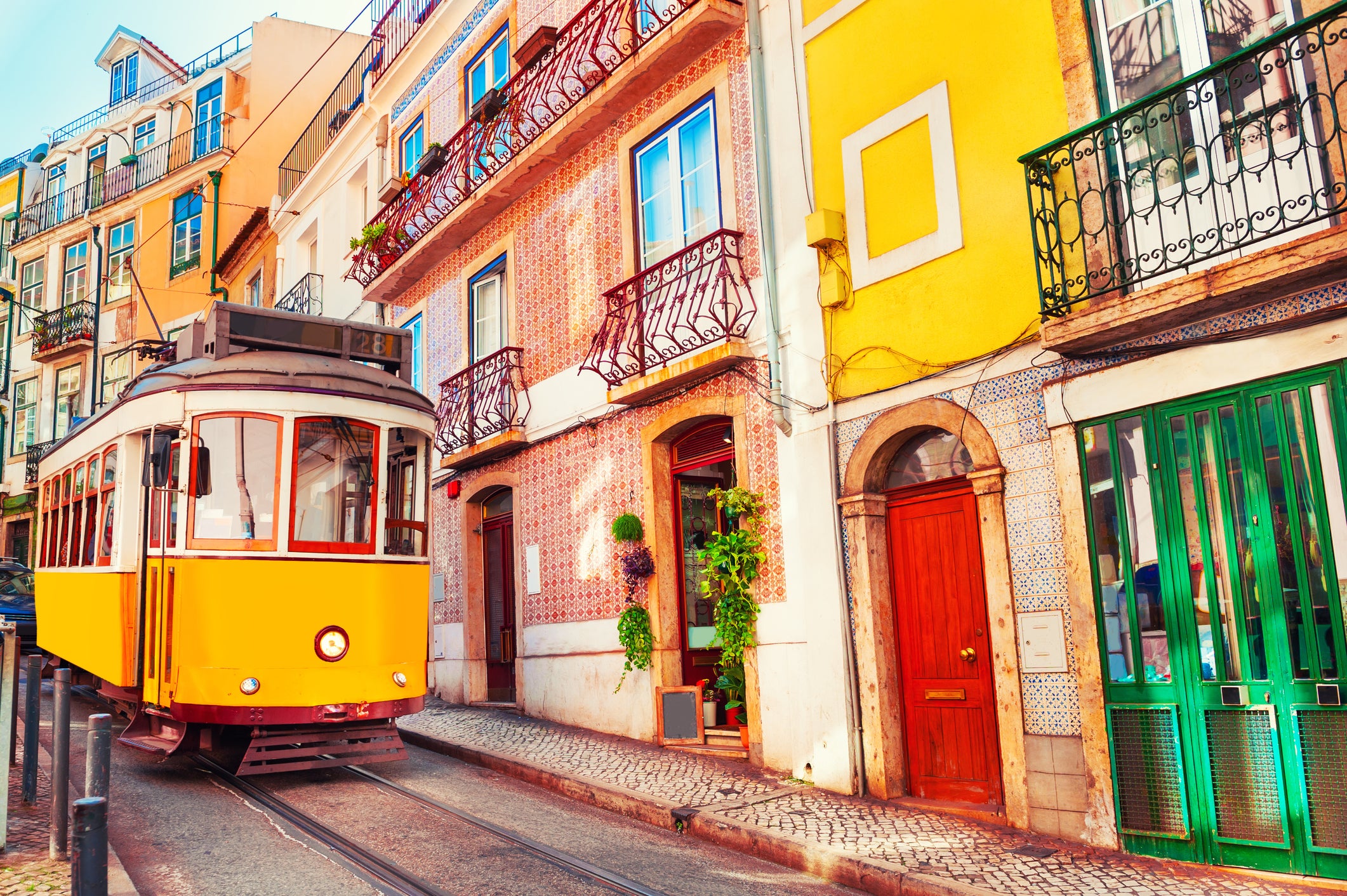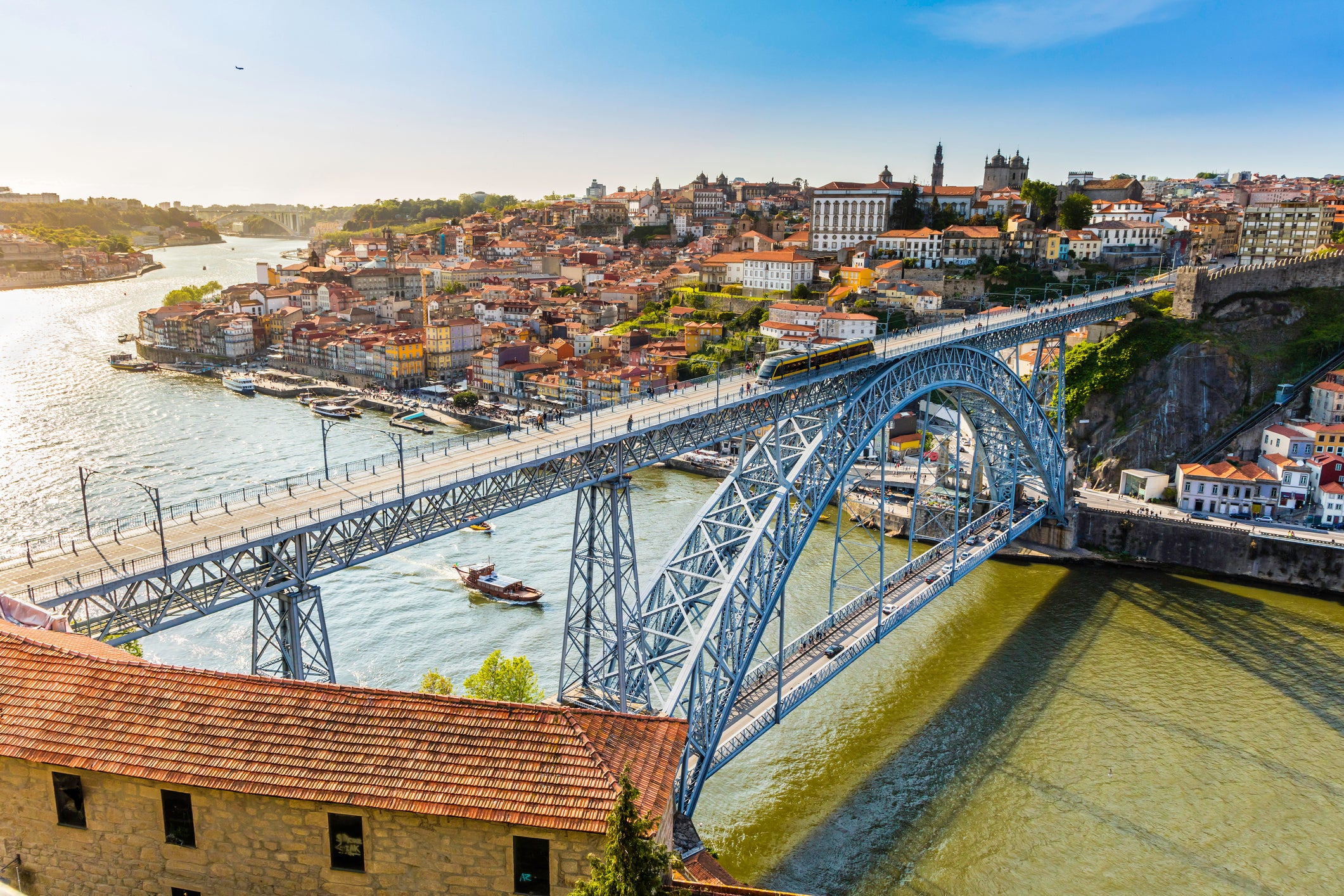What are the rules for travelling to Portugal this summer?
Portugal is on the amber list
Your support helps us to tell the story
From reproductive rights to climate change to Big Tech, The Independent is on the ground when the story is developing. Whether it's investigating the financials of Elon Musk's pro-Trump PAC or producing our latest documentary, 'The A Word', which shines a light on the American women fighting for reproductive rights, we know how important it is to parse out the facts from the messaging.
At such a critical moment in US history, we need reporters on the ground. Your donation allows us to keep sending journalists to speak to both sides of the story.
The Independent is trusted by Americans across the entire political spectrum. And unlike many other quality news outlets, we choose not to lock Americans out of our reporting and analysis with paywalls. We believe quality journalism should be available to everyone, paid for by those who can afford it.
Your support makes all the difference.Jetting off on a foreign holiday from the UK is possible under a traffic light system, with countries classified as green, amber or red and prescribed restrictions to match based on the risk of arrivals importing new Covid-19 infections.
Although holidays are no longer prohibited, there are still myriad hoops travellers must jump through, including pre-departure and post-arrival coronavirus tests taken within a certain timeframe. The government is currently advising that Brits should not be visiting amber or red countries for recreational purposes.
On 24 June, transport secretary Grant Shapps announced the latest updates to the traffic light lists, with 16 destinations moved from amber to green and seven downgraded from amber to red.
The lists are being reviewed and updated every three weeks.
Although Portugal was originally the only mainstream tourism destination on the green list, it was shunted into the amber category in the first government review back in early June. Thousands of holidaymakers were forced to scramble back to the UK after the last-minute change to avoid quarantine.
Follow live: ‘No new countries to go green’, reports say
All amber arrivals must self-isolate for 10 days at home and take two post-arrival PCR tests.
With the change in colour band, what are the rules on travelling to Portugal this summer and are British holidaymakers welcome there?
Here’s everything you need to know.
Will British holidaymakers be allowed to travel to Portugal this summer?

Yes, though with hefty caveats.
Portugal's battle to contain the surging Covid-19 Delta variant has led it to put the UK on its red list for travel.
It means that only British arrivals who can show proof of full vaccination, with their second dose at least 14 days prior, can visit Portugal quarantine-free.
British travellers who aren't vaccinated must quarantine for two weeks after arriving in Portugal, the Portuguese government announced on 28 June. Arrivals can quarantine at their home or in a place stipulated by Portuguese health authorities.
The new law takes effect on Monday 28 June and continues until 11 July. It does not apply to children under 18.
The Portuguese government says the decision “may be revised at any time, depending on the evolution of the epidemiological situation”.
The law does not apply in Madeira, which has been moved back to the UK’s green list.
You must also complete an online passenger locator card before you arrive in Portugal, plus present a negative PCR test taken within 72 hours of travel, or a rapid antigen test taken within 48 hours of travel (with the exception of children up to, and including, the age of 12).
Mainland Portugal remains on the government’s amber list and current advice states that Brits should not be visiting amber or red countries for recreational purposes, such as a holiday - however, it remains perfectly legal to do so.
Will I need to have been vaccinated to visit Portugal?
As stipulated above, visitors to Portugal must be double jabbed if they want to avoid a two-week quarantine.
What rules and restrictions are in place in Portugal?

The gradual easing of lockdown measures that the Portuguese government initiated on 15 March, has been suspended due to an increase in the number of infections. Access to public spaces and services and the right to spend time outside and move between municipalities varies according to the Covid-19 incidence rate in each municipality.
Shops and other commercial premises, restaurants and cafés may have shorter trading hours. Leisure and cultural activities may be banned or limited to smaller groups.
Bars and nightclubs remain closed. It is illegal to drink alcohol outdoors in public places, except for on pavement cafés and restaurants. Alcohol cannot be sold after 9pm unless it is with a meal.
Taxis can only carry passengers in the rear and may limit capacity to two. Do not use the front seat.
You must wear a mask while walking along promenades and in restaurants and cafés until you are seated. At the beach, follow the one-way entry and exit signs and use a mask until you reach your spot on the sand. Use a mask and footwear while using sanitary facilities. Place your sunshade and towel 3m from the next group and keep a social distance of 1.5m when walking along the sand. Before you set off, check the occupancy levels of the beaches near you and avoid the ones that are marked “red” and “amber”.
You can be fined up to €100 if you breach the regulations.
Will I need to self-isolate on return?
Holidaymakers travelling home from a destination on the amber list will need to take a pre-departure test - which can be a lateral flow or rapid antigen test, as well as a PCR test - with proof of a negative result.
Upon arrival to the UK from an amber list country, travellers must self-isolate at home for 10 days, plus have pre-booked and paid to take two PCR tests: one on day two and one on day eight.
Returning travellers in England can opt to pay for a further test on day five and end self-isolation early if it’s negative.




Join our commenting forum
Join thought-provoking conversations, follow other Independent readers and see their replies
Comments